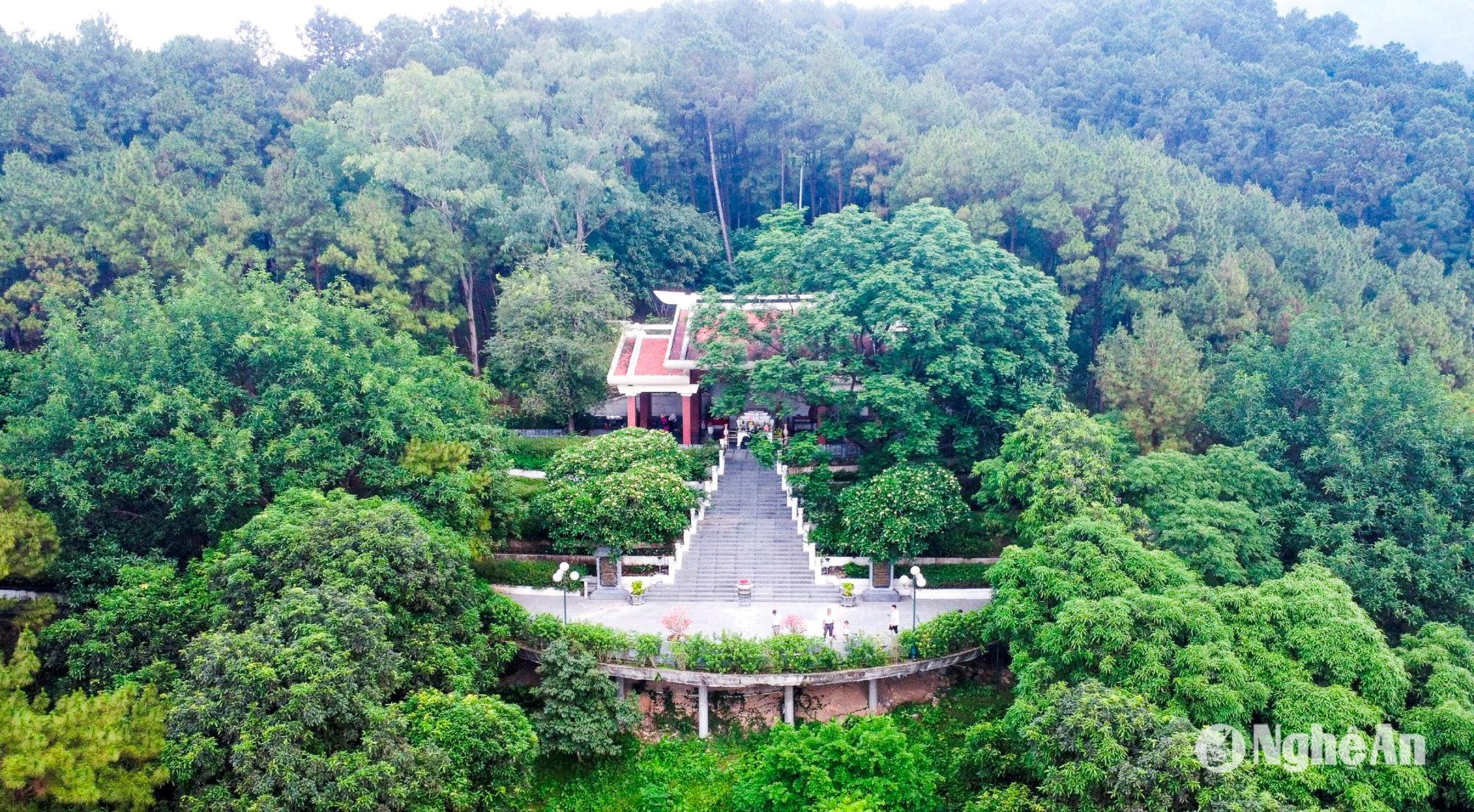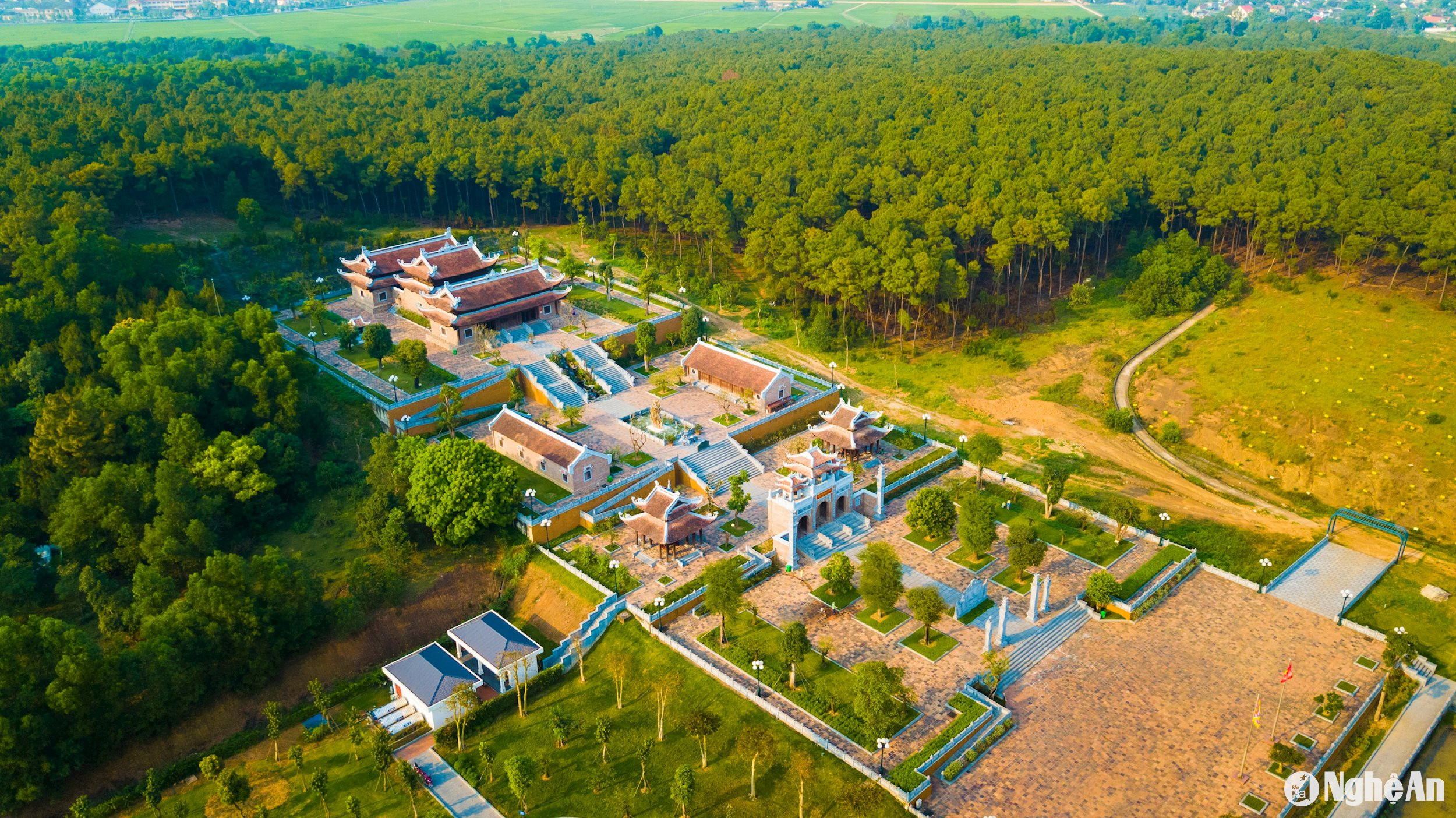'Eldest son Khiem' - President Ho Chi Minh's older brother
"Eldest son Khiem" is the affectionate name that people often call Uncle Ho's older brother - the person who grew up with Uncle as a friend, an older brother, and loved each other very much.
In 1901, when returning to Sen Village to live, when registering his children in the village register, with the wish that his children would be successful in the future, the two brothers - Khiem and Cung - were given new names by their father, "Nguyen Tat Dat" and "Nguyen Tat Thanh".
Nguyen Tat Dat's full name at birth was Nguyen Sinh Khiem, he was born in the year of Mau Ty (1888) in Hoang Tru village, Chung Cu commune, Lam Thinh commune, Nam Duong district, Nghe An province (now Kim Lien commune, Nam Dan district, Nghe An province). Since his childhood, he had absorbed the tradition of patriotism and love for people from both his paternal and maternal families. In particular, he knew a lot about folk literature, traditional medicine, was proficient in geography and had a profound knowledge of Chinese.
.jpg)
With knowledge from books and the times he followed his father to many places, he understood the miserable life of the Vietnamese people under the domination of French colonialists and the feudal court. From that, a deep patriotism and love for the people was kindled in him. When he grew up, Nguyen Sinh Khiem actively participated in many struggle activities, aiming to awaken the masses to rise up against the colonialists and feudalists.
In 1908, he participated in the anti-tax movement in Central Vietnam with his younger brother Nguyen Tat Thanh (because of this, the two brothers were reprimanded and expelled from the Hue National School). Returning to his homeland, he and his sister Nguyen Thi Thanh participated in the patriotic movement of patriot Phan Boi Chau. In 1910, at the request of Ambassador O-gie, he collected and compiled folk songs, proverbs, and folk songs of Nghe Tinh. Taking advantage of this, he included many articles criticizing the feudal colonial regime.

In 1912, he sent a petition to An-be Sa-ro, Governor-General of Indochina, demanding that the Protectorate expand democratic freedoms, reduce taxes and expand education.
In 1913, he was elected by the people to the village Council of Village Officials in charge of village affairs. He boldly carried out reforms to eliminate superstition, alcoholism, gambling, and enlighten the people according to the Duy Tan doctrine - reclaiming 36 hectares of land to distribute to the poor. He secretly participated in the organization of the Quyen and Phan teams to fight against the French; the incident was exposed on April 1, 1914, and he was arrested by the colonial and feudal authorities. On September 25, 1914, the Southern Court sentenced Nguyen Tat Dat to 3 years of hard labor for the crime of plotting rebellion. Three months later, he participated in a prison break but failed. His sentence was increased to 9 years in prison and in 1915 he was exiled to Ba Ngoi, Nha Trang.
.jpg)
Five years later, on March 17, 1920, the French colonialists brought him back to Hue for house arrest. He lived in Trach Pho village (now Phong Hoa commune - Phong Dien district - Thua Thien Hue province). Here he worked as a doctor to save people and opened a class to teach Chinese characters to the children of working people. Although life was very difficult, with his kind and generous heart, he was always willing to share food and clothes with the poor. In 1922, he and his sister Nguyen Thi Thanh secretly worked against the French in the Hue Intellectuals Organization. In 1929, he moved to Phu Le (now Quang Phu commune, Quang Dien district, Thua Thien - Hue province) to continue to prescribe medicine to save people.
With his upright and straightforward character, Nguyen Tat Dat fought many times with traitors. The enemy always monitored his patriotic activities, they limited his contact with people, prevented his relationships. They cleverly poisoned him with alcohol, aiming to neutralize his personality.
On February 6, 1940, the enemy allowed him to return to his hometown. Back home, he continued to participate in cultural activities, performed patriotic plays, taught martial arts to encourage patriotism in children in the area. Because of these activities, on July 28, 1940, the puppet government sentenced him to two months in prison, fined 20 Indochinese piastres and extended his imprisonment to one year. After his release from prison, he continued to socialize and seek like-minded friends and comrades, and on this occasion, in 1942, he found a beautiful location on Dong Tranh mountain, in the Dai Hue range (Nam Dan) to bring the remains of Hoang Thi Loan - his beloved mother to eternal rest.

In 1946, when he learned that his younger brother was President Ho Chi Minh, he went to Hanoi to meet him. The meeting was extremely emotional. Afraid that his younger brother would not recognize him, he asked the guard to send Uncle Ho a small piece of paper with only 3 words "Dat visits Thanh". Uncle Ho choked up when holding that piece of paper. The two brothers only met for more than 1 hour after more than 30 years apart. That was the first and last time Uncle Ho and his brother met each other.
Then he returned to Sen Village to live a simple, pure life in the love of his relatives and the people of Nam Lien commune.
At the end of 1950, he fell ill. Despite the care and medicine provided by the government and local people, his illness was so severe that he passed away on August 23, Canh Dan year (1950) at the age of 62.
At that time, due to national affairs, Uncle Ho and the Party Central Committee were focusing on directing the Autumn-Winter Border Campaign in 1950, and could not return to mourn his brother. From the mountains and forests of Viet Bac, Uncle Ho sent his relatives and clan a touching telegram:
“I was very sad when I heard that my eldest brother had passed away. Because the country's affairs were heavy and the distance was far, I could not take care of him when he was sick, and I could not take care of him when he passed away.
I plead guilty before his soul and ask for forgiveness for a son who sacrificed his family to take care of the country.
Signed: Ho Chi Minh
The life of Nguyen Tat Dat - Nguyen Sinh Khiem is always an example for us to follow and learn about the spirit of ardent patriotism, tireless struggle for the cause of national salvation; an exemplary citizen always ready to help the poor; a pure, upright, generous personality, indifferent to fame, living a simple, honest life, rich in affection.

